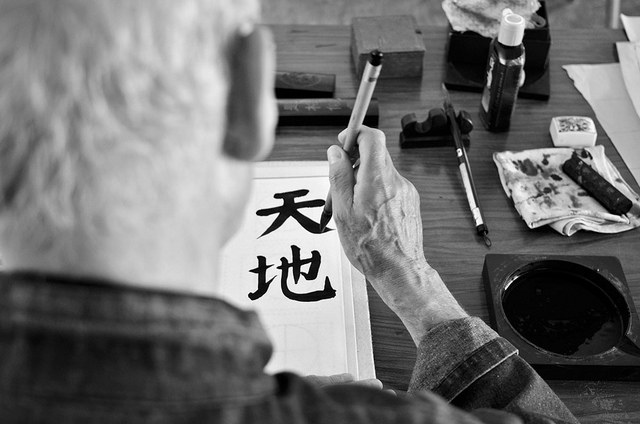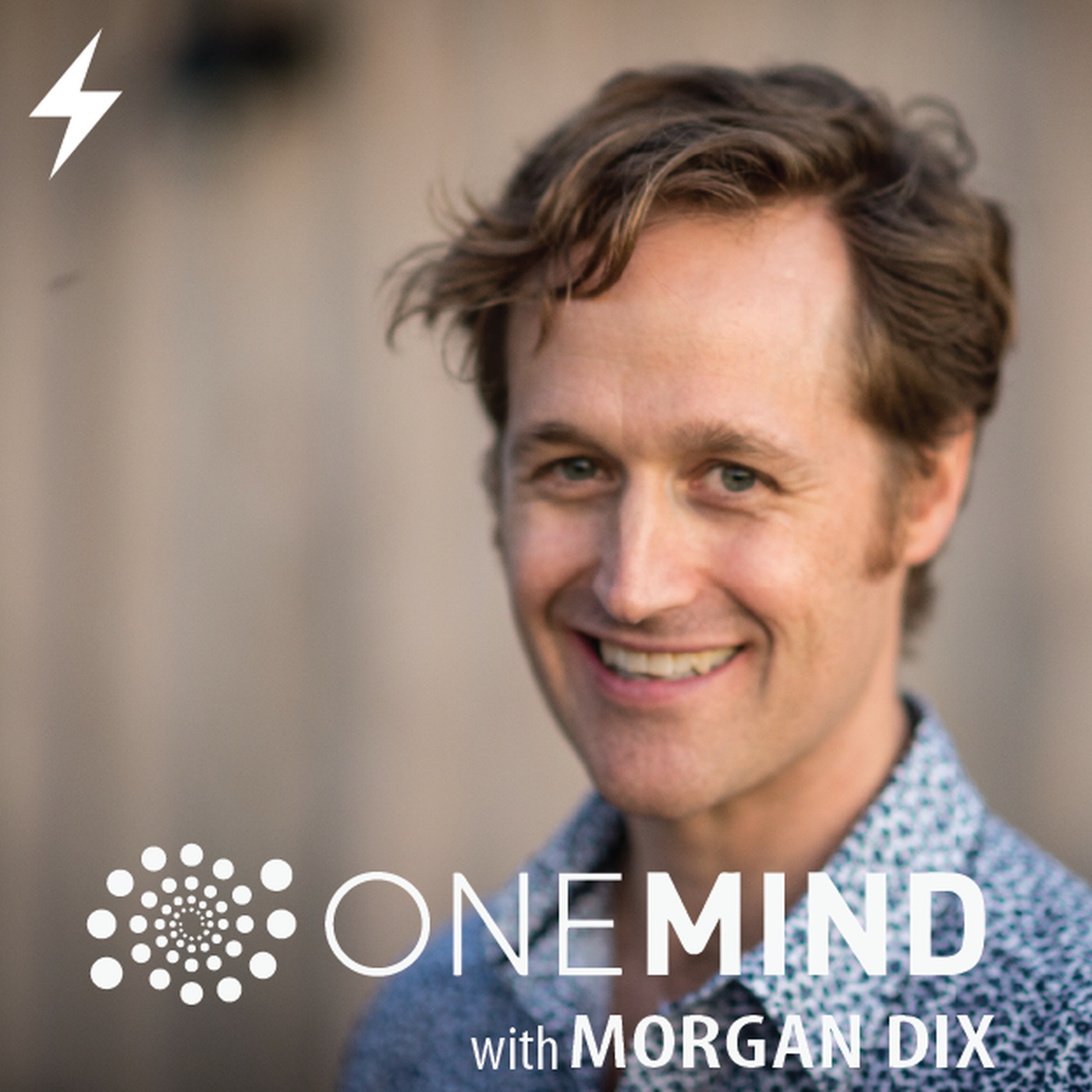
Meditation and productivity. They certainly make for strange bedfellows. How, after all, can an ancient esoteric practice focused on “non-doing” help you to do more in less time with less wear on your system?
This is the question I set out to answer in this episode of The OneMind Meditation Podcast. At the end of this episode, I also share a simple and effective meditation productivity exercise I do every morning.
Meditation And Productivity: The Science & Social Proof
There is a growing body of scientific evidence which suggests that training in meditation and mindfulness reduces distraction and makes you more productive.
Perhaps the most popular study on this topic came out of the University of Washington in 2012. It showed that knowledge workers who trained in mindfulness stayed on tasks longer and made fewer task switches–and felt better about it–than a group without that training. They also demonstrated better memory for the tasks performed.
Another study from Georgetown and University of Pennsylvania showed that marines with mindfulness training showed better working memory capacity (WMC) under high stress than non-meditators. We use our WMC to manage cognitive demands and regulate emotions.
In essence, strong WMC allows you to stay focused–read more productive–under stress. Imagine how important this capacity is during life-threatening situations when it’s important to think on your feet and when many lives depend on it.
At the same time, the business world has embraced meditation with open arms as the next big productivity hack. Ray Dalio manages one of the largest hedge funds in the world, and he says that, “Meditation more than anything in my life was the biggest ingredient of whatever success I’ve had.”
But how can it help you?
How Can Meditation Make You More Productive?
Of course, all of us are busy every day and most of us have a running check list–at work and at home–of things we need to do. But how well do we do those things and what’s the quality of our attention when we do them?
That’s where meditation can help, because meditation is training for your attention. It helps you improve and refine the quality of your attention.
This is important because everything we do requires attention. In fact, everything we experience happens upon the canvas of our awareness.
And the thing is, the quality of your attention affects the quality of your life more than anything else.
In our modern age, most of us live with divided and frayed attention. We have too much going on and we suffer from stress and information overload. As a result, we struggled to stay focused on one thing at a time.
Meditation develops your ability to resistance distraction and immerse yourself in the present moment. Staying grounded in that present moment awareness has the opposite effect of stress.
It helps you think more clearly, creatively, and with greater focus.
A Productivity-Boosting Meditation Exercise
Here are the four topics we cover in this exploration of Meditation and Productivity:
Part 1: Why I wanted to talk about this topic (I share some pretty amazing news!)
Part 2: What is the science and the social proof?
Part 3: Why and how is meditation training for your attention? Why is it especially important in the time that we’re living?
Part 4: I share an exercise with you that I practice every day to marry meditation and productivity. It’s a practice that has helped me a lot, and I think it can help you too.

Show Notes
- Buy The ONE Thing by Gary Kellar
- If you enjoyed this podcast, you may also like the Meditation for Life Mini Course
- Learn more about free awareness meditation with How To Free Your Mind & Discover Deep Peace
- Take a self-paced introduction to Meditation and explore the Meditation For Life Core Training Program
- Leave us a rating & review on iTunes
Wonderful, thank you!
Thanks for listening Esperanza!
Thanks Morgan, this is great! Very simple and powerful. I love it and I will work this into my morning practice.
My productivity meditation tip: I’m doing work on my computer every day and night. I can get overwhelmed and waste a lot of time floating between projects or distracting myself with this and that. I often find it difficult to get into that creative zone.
What helps tremendously (when I remember to do this) is to take 1-5 minutes to sit and meditate and create a space inside my awareness for that project. The effect is profound. I find it especially useful to meditate on an image when doing this; it might be an aspect of a design I’m working on, my clients’ logo, a photograph, or a geometric form.
For me the image serves as a portal into an undistracted creative space, designed just for the client and that task. Perfect geometries tend to be the most effective forms to use. Might sound weird, but it works for me 🙂
Wow! Thanks for your comment James. That’s an awesome tip. I love it. I will definitely try this since I also have clients I work for and often need to switch gears and sometimes that’s challenging and feels like grinding the gears. I can see how this could help me prime my focus and switch gears more smoothly while honing in on the work at hand. Awesome. Thanks!
Great article as always,
Thankyou.
Nevertheless I think I share the ambivalent reaction of many around the world to your two examples of US Marines and a Hedge Fund manager.
May I ask my question in a certain manner to make my point clear?
Why do these two examples meditate?
So they can kill more effectively, and to be more effective in widening the current wealth gap?
One would trust that their intention is wholesome.
But then why is there such a widespread alternative perception?
Hi Mo,
Thanks so much for your comment. I’ll say from the start that it will help you put the two examples you cited in context if you listen to the podcast episode. It helps to answer your questions. And that’s not to say your questions aren’t valid and worth exploring. I think they are. It’s just a different topic that what I’m exploring here. But here are a few quick thoughts.
These examples are useful inasmuch as they give us examples of how meditation can be useful in maintaining productive focus when we’re under pressure.
In the podcast, I describe a study out of the Georgetown and UPenn and funded by the American Psychological Association (APA) which explores something called Working Memory Capacity (WMC) which is our ability to hold ideas and also manipulate them in our mind–high level operative cognition. For most of us, that capacity gets seriously compromised when we’re under serious stress.
IE – when we’re under pressure in fight or flight, we often lose our ability to think clearly and quickly and “keep our wits about us.” The study focused on marines being deployed to the front to test their WMC…comparing a group who meditated with a group who did not. WMC was much higher under stress in those who did the 8-week meditation training.
Also, whenever someone raises this question, it reminds me of this great article from The New Yorker, called Meditation For Strivers. Here’s a quote from that article. I think it well reflects my general view in response to your question.
You can read the full article here. I definitely recommend it because it explores and gets to the heart of what underlies your question much better than I could in this short space.
Thanks Morgan! Wonderful post.
I do find myself distracted far too easily when I am trying to work, hopefully meditation can help me overcome this and I can stop getting in trouble with my boss! 😀
I really liked the idea you referenced about the “quality of your attention”. It made a lot of sense to me and I think that is something I definitely have a lot of problems with! I focus my attention far too much on multiple, silly, mundane things.
I am still a newbie to meditation and I am looking for what works for me but I feel I am a little closer now! Thanks again!
Hi Alan,
That’s awesome. Thanks so much for your comment and I’m glad you found these tips helpful, especially the bits about the quality of our attention. Definitely can’t overstate the importance of that. Good luck and keep us posted!